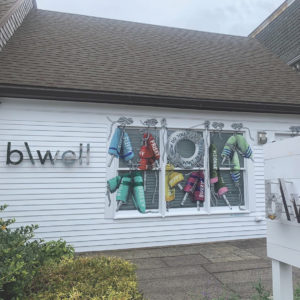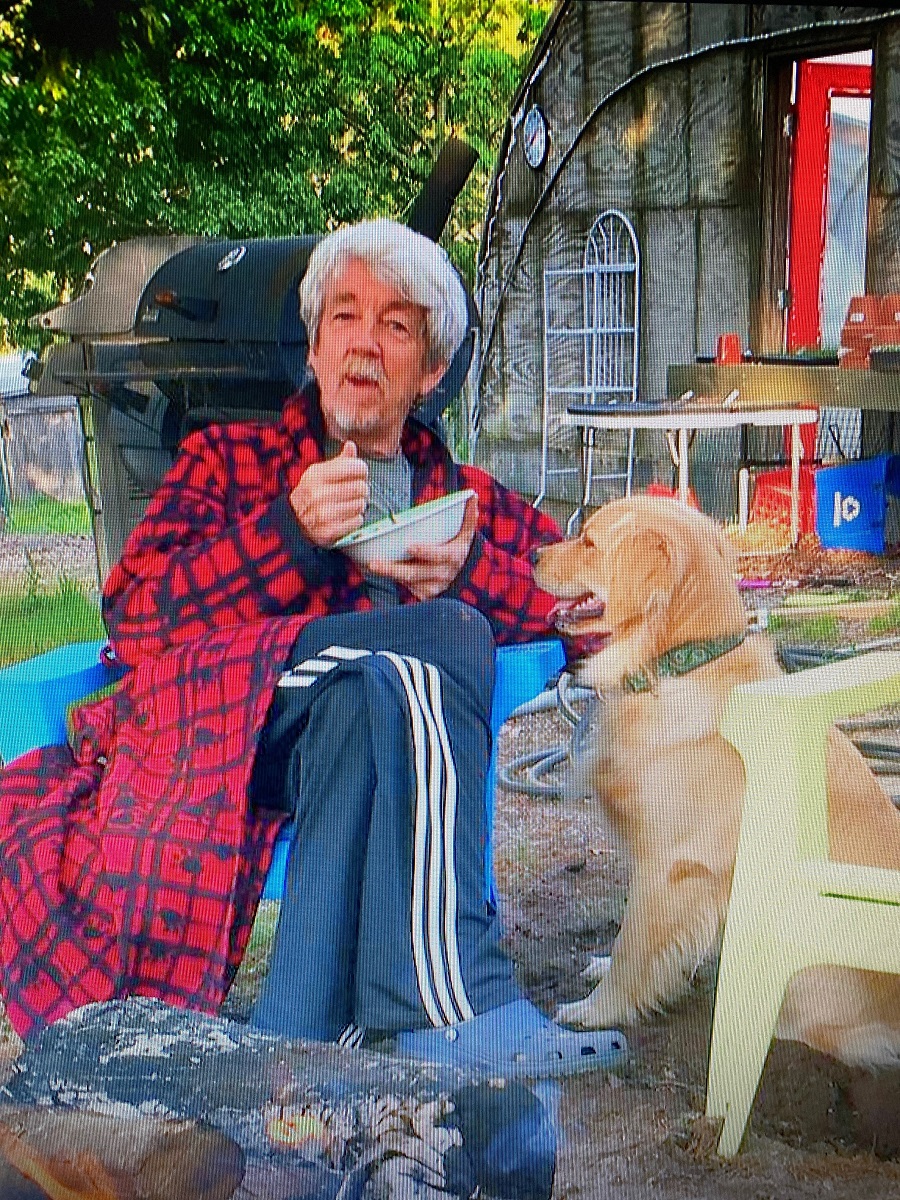TRURO — Abutters of a proposed recreational cannabis cultivation and processing facility on Old Bridge Road expressed concern at a recent planning board hearing that their properties would be engulfed in the skunky smell the plant gives off and their neighborhood might be targeted by criminals looking to steal the profitable crop.
The proposal, submitted by Out There Grown and Pure Joy Farm, both members of the High Dune Craft Cooperative, calls for both indoor and outdoor growing areas for cannabis, two sheds for drying, two trailers for storage, and a commercial kitchen in an existing house where the cannabis would be processed into a variety of products such as oils, creams, and edibles, and then branded for sale.
While both growing and processing would take place at 23 Old Bridge Road, the adjacent property at 21 Old Bridge will be needed to meet the town’s minimum lot size of 1.5 acres, as well as for access to number 23. The adjacent lot would also provide parking.
Out There Grown is owned and operated by Stephanie Rein and Arthur Bosworth. Debra Hopkins is the owner of the two Old Bridge Road properties that make up the target site; she is a principal of Pure Joy Farm. The farmers plan to share a 3,600-square-foot greenhouse and outdoor growing area in an arrangement that has been approved by the state Cannabis Control Commission (CCC).
Because it is located in a residential zone, the operation requires site plan approval from the Truro Planning Board and a special permit from the zoning board of appeals.

The provisional license from the CCC also allows processing marijuana not grown at the site. But attorney Michael Fee, who represents both applicants, told the planning board on March 23 that his clients do not intend to import cannabis. The facility’s purpose, Fee said, “is to process our products. The only thing we will import are the seeds.
“The greenhouse is about as high-tech as it gets,” said Fee. It is equipped with fans and humidity control. “The configuration of the greenhouse is designed to make the airflow go with southwesterly winds,” he said, which would send odors toward 25 Old Bridge Road, currently vacant, and the National Seashore.
Brothers David and John Wilson, who own 25 Old Bridge Road and nearby 19 Hatch Road, were concerned about those odors. John has lived at 19 Hatch since 1968. David plans to build a house at 25 Old Bridge, the brothers told the planning board. “Even if we’re not building,” John Wilson said, “it would devalue any use.”
“The proposed greenhouse is 126 feet from the property line at 25 Old Bridge,” said David Wilson. He said he feared “armed intruders approaching from the south to rob the hash crop.”
The Wilsons wanted the planning board to require screening on the shared lot line with the target site. Calling that idea “cart before the horse-ish,” Fee said it wasn’t appropriate to ask for screening when nothing was built at 25 Old Bridge Road yet.
Regan McCarthy wondered how the waste would be handled. “This is all new to us,” she said.
Marc Tarrasch, who lives at 8 Old Bridge Road, said his concern was the road. “It’s marginal,” he said. “It gets washed out in the rain. I’m worried about the wear and tear.”
The planning board public hearing was continued to April 6 after attorney David Reid, who is representing the Wilsons, said the required legal advertising and abutters’ notice had mistakenly listed only 23 Old Bridge Road as the target site, failing to mention number 21.
Meanwhile, Fee will put together more information on 21 Old Bridge, including plans for composting, parking, the commercial kitchen, and odor control.
Earlier this week, Fee said in an email that he plans to resubmit the farmers’ applications with the additional information requested by the planning board on April 19. The hearings would be re-advertised and “the next substantive hearing should take place on May 18,” Fee said.
The High Dune Cooperative, which includes four local growers, has already reached a host community agreement with Truro. That agreement provides the town with a fee equaling one percent of the operation’s gross sales in the first year, 2 percent in the second year, and 3 percent in the third.
A second marijuana facility, called “the Hatchery,” is also in the works. It is a joint venture planned for Noons Heights Road by Zachary Ment, owner of the Piping Plover in Wellfleet, and Jonah Turner and Harlen Howard, co-owners of Eastham’s Salty Farmers.
Earlier this week, Ment said in a phone interview that the Hatchery has just finished negotiating a host agreement with Truro. After a community outreach meeting, they will apply to the state for a provisional license, Ment said.
Editor’s note: Because of a reporting error, an earlier version of this article, published in print on April 7, inaccurately gave the name of one of the applicants for the cannabis facility on Old Bridge Road. It is Out There Grown, not “Over There Grown.”




U.S. Attorney Andrew Lelling has questions for towns that have issued host community agreements to marijuana businesses.
Provincetown, Wellfleet, and Eastham town administrators all received subpoenas last month ordering them to produce documents, emails, and any other correspondence associated with the agreements.
They must appear at the John Joseph Moakley U.S. Courthouse to testify before a federal grand jury, according to the subpoena issued on Oct. 8 to Eastham Town Administrator Jacqueline Beebe. The notice commands her to be at the courthouse at 10 a.m. on Nov. 14.
Rae Ann Palmer, town manager in Truro, which has given a host agreement to a cannabis farming group, the High Dune Craft Cooperative, had not received one as of Tuesday, she said. But Wellfleet Town Administrator Dan Hoort and Provincetown Acting Town Manager David Gardner both have, they said.
No one knows why exactly. Katherine Laughman, who represents several towns including Eastham for KP Law, said she could not comment on the subpoenas because federal grand jury investigations are secret.
Lelling’s interest has something to do with the host community agreements, which are the critical first approvals marijuana businesses must get from towns before they can seek state licenses. In the case of medical marijuana dispensaries the agreements are called letters of non–opposition.
The subpoenas call for all written, electronic, or other records relating to any business that has applied for a marijuana (adult use or medical) license.
Officials must include “every iteration and draft version of the agreement,” the orders state. The U.S. attorney wants voicemail recordings and everything pertaining to public deliberations. And he has demanded all records that identify current or former town employees who have been hired by or received payment from a marijuana business applicant.
Gardner said he suspects the subpoenas have to do with the investigation and Sept. 6 arrest of Jasiel F. Correia II, the mayor of Fall River, whom the U.S. Dept. of Justice has charged with “extorting marijuana vendors for hundreds of thousands of dollars in bribes,” according to the U.S. attorney’s public announcement. Lelling’s office, which is prosecuting Correia, states that the bribes range from $100,000 to $250,000 in cash. In exchange Correia agreed to issue non-opposition letters and community host agreements to marijuana business owners, according to Lelling’s office.
Correia, 27, issued at least 14 non-opposition letters for marijuana businesses to operate in Fall River, including two for his current girlfriend’s brother. And when the Fall River City Council passed an ordinance to limit the number of marijuana licenses in the city to 20 percent of the number of off-premises liquor licenses or 11, whichever is greater, Correia vetoed the order, claiming that it would eliminate competition, Lelling’s announcement stated.
Attorney Michael Fee, a Truro resident who represented the High Dune Craft Cooperative in obtaining host community agreements from Truro and Wellfleet, said Gardner is probably correct. The host community agreements have been controversial from the start, he said.
“I can only speculate — I don’t know what Lelling is thinking,” Fee said. “But he’s probably thinking of the abuses unearthed by the Fall River mayor. These are egregious violations of the public trust.”
The host agreements give communities leverage over marijuana businesses. Towns are allowed by law to ask that up to three percent of sales revenue in the first five years be given to the towns as “community impact fees,” said Fee.
There is a clause in the law stating that community impact fees must correlate with the actual cost burden a new marijuana business places on police, fire, and other municipal services.
How do you judge such an impact with a completely new industry? Fee asked.
“My feeling is some cities and towns feel they can interpret this broadly,” Fee said. “So it’s an environment that’s ripe for unscrupulous public officials.”
Towns can also ask for other payments, as well as donations in kind, in the host agreements. These agreements are all public documents.
In Provincetown, for example — which has host agreements with seven pot purveyors — the community impact fee for all vendors is three percent of gross sales. Plus the cannabis vendors must give a discount to low-income medical marijuana card holders and donate 100 hours of community service activities. Each applicant also agreed to make an annual charitable contribution of up to one percent of gross revenues to a fund established to provide grants to social service agencies.
While host community agreements may have some controversial aspects that are open to interpretation, Fee thinks U.S. Attorney Lelling is looking for major corruption, such as what allegedly occurred in Fall River.
It’s highly unlikely Lelling will find anything like that on the Outer Cape, Fee said, adding that the agreements with Truro and Wellfleet on which he advised clients are completely appropriate.
In Provincetown, Gardner said the seven marijuana businesses that have host agreements are still waiting for final state approval. The furthest along, Curaleaf at 170 Commercial St., will probably open in January.
Wellfleet has five host community agreements for retail sales and one for cultivation, though none has final state approval.
Truro has signed only with the High Dune Craft Cooperative.
Eastham has two agreements, one for retail, one for both retail and cultivation.